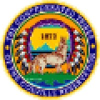Description
CLOSING DATE : May 24, 2024
POSITION : Forestry Engineer I,Sr.
SALARY : $34.55-$45.43, per hour DOE
REPORTS TO : Forester
LOCATION : Forestry; Reservation Wide
Basic Functions : Under the guidance of a Supervisory Forester the Incumbent functions as the Forest Engineer for the Colville Indian Reservation.
The Branch of Forestry is responsible for harvesting approximately 77 million board feet of timber from approximately 660,418 acres of commercial forest land within the 1.
4 million acre Colville Reservation. The revenue from this harvest constitutes approximately ninety percent of the operating revenue for the Colville Confederated Tribes.
The land base is composed of varying landforms with a complex forest stand structure requiring a variety of advanced harvesting systems that must operate economically within diverse watersheds.
Such operations require a sophisticated infrastructure that has a direct impact on the forest ecosystem and often creates conflicts with other resources.
Qualifications
MINIMUM QUALIFICATIONS :
Education and Training :
Engineer I :
The position typically requires Bachelor’s degree in forestry, forest management, Natural Resource Management and a minimum of Two (2) years of professional experience in forestry, forest management, Natural Resource Management, or closely related field;
OR A Bachelor’s degree in civil or forest engineering.
Requires a valid WA State Drivers’ License and must maintain throughout employment.
Engineer Sr.
- The position typically requires a Bachelor’s degree in civil or forest engineering, AND Three (3) years of engineering experience in the transportation or forest engineering field, with a working knowledge of Stream Simulation design, hydraulic design principles, and design of road infrastructure;
- OR Bachelor’s degree in forestry, forest management, Natural Resource Management and a minimum of Five (5) years of professional experience in forestry, forest management, Natural Resource Management, or closely related field;
Requires a valid WA State Drivers’ License and must maintain throughout employment.
Knowledge, Skills, and Abilities :
- Requires professional knowledge in forest land management principals, concepts, theories, and practices in order to conduct the development and implementation of intensive forest resource management.
- Requires professional knowledge in Forestry, including forest ecology, silviculture, mensuration, engineering, surveying, mapping, entomology, pathology, forest soils, wildland fire;
and familiarity with related fields such as watershed and stream habitat protection, wildlife habitat management, landscape architecture and other resources associated with the forested ecosystem.
- Knowledge of Federal and Tribal policies and regulations affecting forest management activities including Federal statutes, Tribal codes, the Colville Tribal Integrated Resource Management Plan and other local Colville Agency policies.
- Requires knowledge and specialized training in logging systems, logging system analysis, skyline analysis, and payload analysis of numerous types of diverse harvesting equipment.
- Requires knowledge to designate the appropriate application of sophisticated harvesting equipment based on terrain, economics, environmental factors, and the operating specifications of the equipment.
- Requires knowledge in conducting production analysis, empirical cost analysis, and the financial analysis of harvesting operations for a wide variety of harvesting processes and equipment including the introduction of any new technological developments to the field of timber harvesting.
- Requires knowledge and experience in civil engineering for the design of forest roads, bridges, complex culverts, and other hydrologic structures.
- Possess specialized knowledge in watershed hydraulics, complex culvert design, bridge design, and associated financial cost analysis.
- Requires knowledge of Federal Timber Sale contracts, contract writing, subsequent contract administration, and contract mediation.
- Knowledge of public land survey and survey methods in accordance with the methods and procedures as prescribed by the USDI Bureau of Land Management Manual of Surveying Instructions.
- Requires knowledge and experience in cadastral surveys for locating land survey corners, property corners, and property lines on a variety of property types including Fee property and Indian Allotments.
- Requires knowledge of land easements, rights-of ways, and the documents and procedures necessary for obtaining the legal right to cross other land ownerships with the transport of tribal timber.
Requires the ability to use ArcGIS products to assess remote sensing information such as, LiDAR, Digital Elevation Models (DEM’s) and digital imagery to identify, map, and digitize transportation systems.
Requires the ability to observe and record critical hydrologic and stream data.
Requires ability to develop cost and production models based on manufactures specifications, dealer information, research studies, and through additional communications with universities, research stations, and contractors operating off the reservation.
Requires the ability to administer the development and construction of high cost infrastructure including critical blasting operations.
Requires ability to represent Forestry when conflicts arise with other resources concerning harvesting / transportation issues and makes recommendations or changes that may require the development of new methods or procedures.
Requires ability to coordinate timber harvesting / transportation plans with Fire Management assuring proper fire suppression access and prescribed fire activities following harvesting operations.
Requires ability to participate in multi-discipline management planning for the development or revising of natural resource management codes.
Must be able to function outdoors in varying elemental and terrain conditions that may sometimes be considered extreme including : temperatures ranging from -20 degrees to over 100 degrees, deep snow requiring snowshoes, severe topographic relief, extreme dust conditions, and exposure to bears, cougars, bees, and poisonous snakes and plants.
Requires ambulatory ability to sit for varying periods of time, to utilize microcomputers and peripheral equipment, and to move about various campus locations.
Requires the ability to use near vision to read printed materials.
Requires auditory ability to carry on conversations in person and over the phone.
Requires sustained repetitive motions and manual and finger dexterity to write, use a pointing device, keyboard at an acceptable, operate microcomputer, and operate other office equipment.









